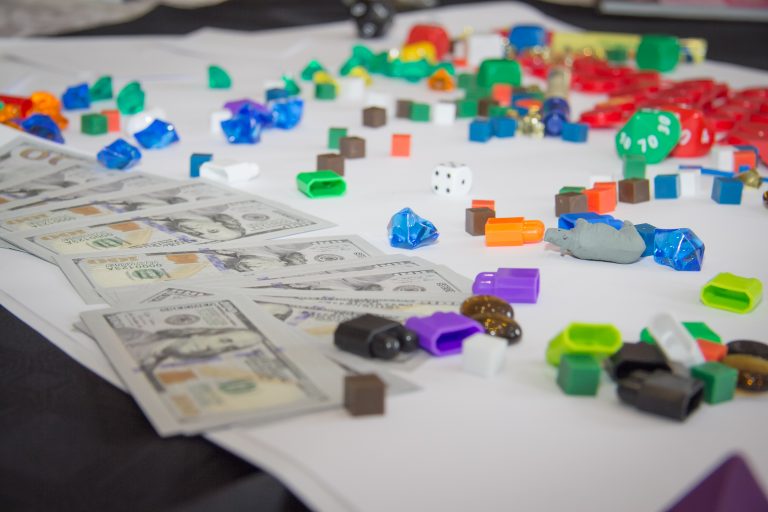About RGD
About RGD
Conceptual background
![WWF-Water-Workshop-75[1]](http://rgd.joannecraven.co.uk/wp-content/uploads/sites/6/2020/04/WWF-Water-Workshop-751.jpg)
![WWF-Water-Workshop-46-768x512[1]](http://rgd.joannecraven.co.uk/wp-content/uploads/sites/6/2020/04/WWF-Water-Workshop-46-768x5121-1.jpg)

Rapid Games Designing comes from the lessons learned from games experiences in the careers of Bruce Lankford and Joanne Craven. These lessons can be distilled into one question: what is a highly effective format for quickly engaging actors in effective deliberations to understand the systems they are associated with? In answering this question we found ourselves gravitating towards the design of games rather than the playing of games. Over five workshops covering different topics we honed our approach. We term this ‘rapid short-format games designing’ or, to use an abridged term, ‘rapid games designing’ (RGD).
In brief, the RGD format uses a 4 to 6-hour workshop for 15-50 people whereby three to eight groups of 4-6 participants are led through the process of designing a prototype tabletop game representing a dynamic and complex socio-ecological system. The workshop begins with guided exercises (or “baby steps”) to bring participants to a point where they are comfortable building game prototypes using the game materials provided. They then have 60-90 minutes to create the outline of a game which they feel recreates the complex system – or an aspect of it. This results in a number of games representing different group perspectives on the system, the comparison of which provides incredibly rich material for discussion in the last part of the workshop where participants consider similarities and differences between the games to create a whole-workshop vision of the system.
Case study: Tzaneen, South Africa
As part of a project looking at the resilience of the UK fresh fruit and vegetable supply, we invited 20 players in the South African fruit sector (a major exporter to the UK) to a workshop where we explored how they see resilience. Unlike other games-based methods, we decided to cut out the middleman. Instead of learning from the participants and then going away and making a game ourselves, we gave them a heap of game components and asked them: “If the South African fruit industry was a game, what would it look like?”.
We started with a few exercises with dice and cards to warm up, and then the participants had two hours in groups of 4-8 to design their games. It was amazing to see the fundamental questions that come up in such a fun exercise: what does “winning” look like? Should all players start from a fair starting point? What risks will players be exposed to? How can we fit this plastic rhino into the game?
Once the games were designed many of them led to rich discussions. I was surprised by how sophisticated some of the games were: there were mechanisms with competing personal and group objectives and scope for bluffing (and even cheating).
After the workshops I did an analysis of the games to see which mechanics were used and what assumptions about reality hid behind the games. This contributed to answering questions such as “What timescales are relevant for fruit sector decision-making?” or “What events are seen as external risks and which are seen as “part of the industry”?”.
This was the first time we’d used game design this way, and we were really excited about the results. For us, the strength of the method is that it poses deep and important questions in an implicit (and non-threatening) way. It gets at the knowledge we all have floating around in our heads which we don’t usually give voice to, and does so without putting us on the spot.
Publications
Lankford, B.A.; Craven, J. Rapid Games Designing; Constructing a Dynamic Metaphor to Explore Complex Systems and Abstract Concepts. Sustainability 2020, 12, 7200.
Acknowledgements
Bruce came up with the RGD idea during a research project called “Increasing resilience to water-related risks in the UK fresh fruit and vegetable system”, funded through the Global Food Security “Resilience of the UK Food System in a Global Context” programme with support from the Biotechnology and Biological Sciences Research Council, Economic and Social Research Council, Natural Environment Research Council and Scottish Government (BB/N020499/1). We are very thankful to other members of the FF&V research team whose insights and comments over the last few years assisted with this work: Tim Hess, Jerry Knox, Kate Pringle, Jon McCosh, Mlungisi Shabalala and George Garbutt. We appreciate the participation and contributions of the many tens of people who took part in the games designing workshops held to date.